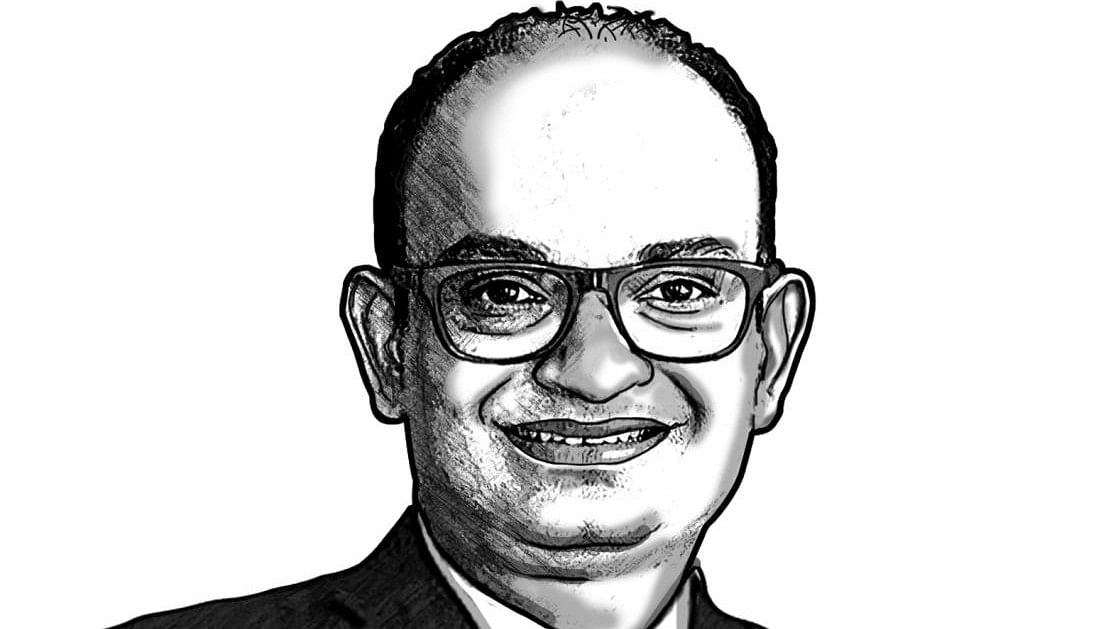
Gopichand Katragadda the former CTO of Tata Group and founder of AI company Myelin Foundry is driven to peel off known facts to discover unknown layers @Gkatragadda
In India, discussions about health risks for the ageing population have long been dominated by heart disease concerns. Cardiovascular ailments have traditionally been viewed as the primary threat to our elderly. However, during a recent dinner conversation, Dr Sharan Patil of Sparsh Hospitals remarked, “The health issue with ageing is increasingly that of the lung, maybe even more than the heart.” This simple yet profound statement underscores a growing realisation within the medical community: when considering mortality and quality of life, respiratory health -- exacerbated by pollution, lifestyle, and environmental factors -- is emerging as one of India’s most pressing health challenges, especially among the elderly.
Respiratory distress, marked by difficulty in breathing, is becoming more prevalent in India due to conditions like asthma, Chronic Obstructive Pulmonary Disease (COPD), pneumonia, and Acute Respiratory Distress Syndrome (ARDS). Symptoms such as wheezing, cyanosis (bluish skin due to lack of oxygen), and rapid breathing, often require urgent medical attention. Even heart failure can lead to fluid build-up in the lungs, known as pulmonary oedema, exacerbating respiratory difficulties.
The severity of respiratory distress cannot be overstated. Recently, I had the opportunity to learn about applied research by a start-up in the US focusing on providing molecular oxygen (oxygen therapy) for those experiencing respiratory distress. This start-up aimed to offer alternatives to ventilators -- a need that was starkly highlighted during the Covid-19 pandemic. Such innovations emphasise the critical importance of addressing lung health proactively. Healthcare start-ups in India could similarly find opportunities to innovate in lung health solutions.
Lung diseases such as COPD and asthma are increasingly affecting India’s ageing population. According to the Global Burden of Disease report, COPD is the second leading cause of death in the country, with over 55 million people affected. Urban pollution exacerbates this issue, particularly in heavily polluted cities, leading to a marked rise in respiratory distress cases. India is home to 21 of the world’s 30 most-polluted cities, exposing millions to chronic air pollution that directly impacts lung health. Limited access to quality respiratory healthcare services can also lead to higher morbidity and mortality from lung diseases compared to heart diseases, which might have more established care protocols.
To tackle the rising tide of lung disease, India must adopt a multi-pronged approach involving all sectors of society:
1. Government Policies: Stricter air quality regulations and promoting cleaner energy sources are essential. Public health campaigns focused on the risks of respiratory diseases and the importance of early intervention should be prioritised. Expanding access to healthcare services in rural and urban areas, particularly lung health diagnostics and treatment, is vital.
2. Healthcare Providers: Specialised lung care centres can provide focused asthma, COPD, and lung cancer treatment. Telemedicine and remote monitoring can help manage chronic conditions, providing care for those in under-resourced or remote areas.
3. Industries and Employers: Reducing industrial emissions and promoting workplace health initiatives can help mitigate the impact of pollution on lung health. Adopting cleaner technologies and ensuring compliance with environmental standards are necessary to reduce the strain on public health.
4. Start-ups and Innovation: Indian healthcare start-ups can explore innovative approaches to respiratory care. The challenges exposed during the Covid-19 pandemic highlight the need for accessible and effective treatments for respiratory distress.
5. Lifestyle Changes: Age-appropriate physical exercise, including walking, swimming, tai chi, and yoga, can significantly improve lung health. Coupled with proper nutrition and diet, these practices strengthen the respiratory system and enhance overall well-being. Community programmes and senior centres can offer classes and workshops tailored to the elderly, promoting healthy lifestyles and social engagement.
As Dr Sharan Patil pointed out, the lung is now more of a concern than the heart with the aged in India. With rising cases of respiratory diseases worsened by pollution and lifestyle changes, India must focus on strengthening lung health initiatives. By adopting a comprehensive approach that includes government policies, healthcare improvements, technological innovation, and lifestyle changes such as yoga, we can protect and enhance lung health for millions, ensuring healthier, longer lives for India’s ageing population.
It’s time to breathe new life into our healthcare strategies and give our lungs the attention they deserve in an increasingly polluted world.